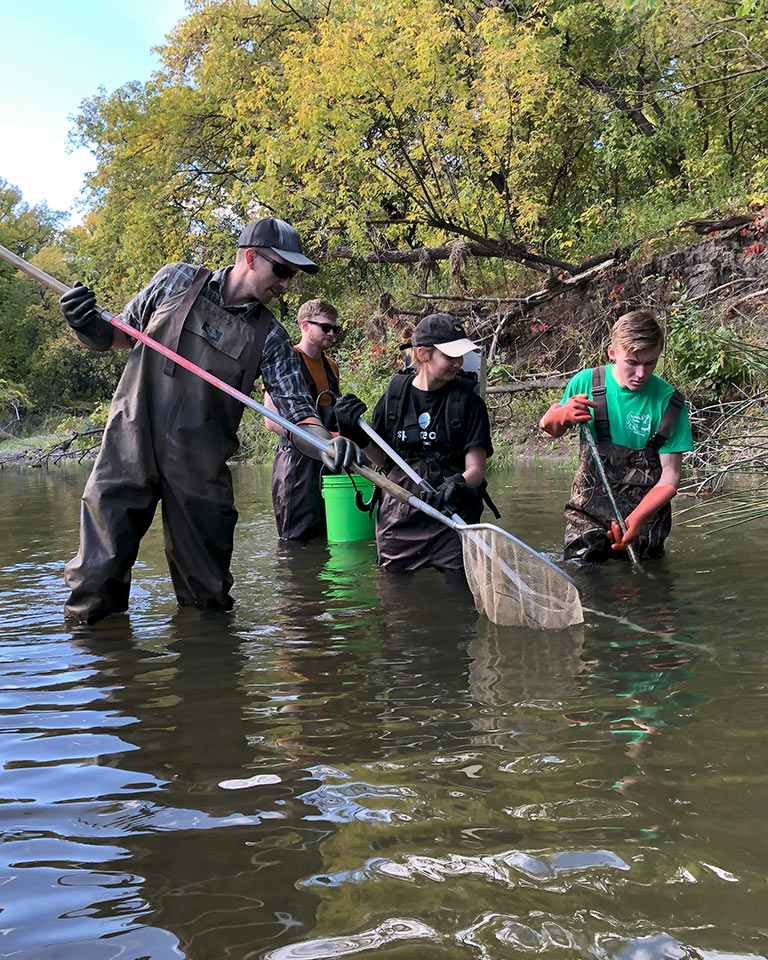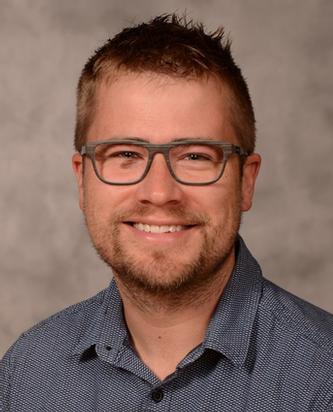
UNDerwater Lab
Working together to improve natural resource conservation and management.
The overarching goal of the UNDerwater Lab is to educate and prepare future professionals (i.e., students) so that they can improve natural resource conservation and management by challenging long-standing paradigms.
About the Lab
The UNDerwater Lab appreciates cross-disciplinary collaborations and novel approaches, which is fundamental to address the complexity of natural resource problems that we currently face. Specifically, our lab enjoys understanding and sharing how cross-scale spatial and temporal processes interact to shape aquatic ecosystems and social-ecological systems. We are a question-driven lab and not tied to any particular ecosystem. Thus, students in the UNDerwater Lab are working in wetlands, lakes, reservoirs, and rivers. Much of our work is centered on understanding spatiotemporal dynamics of recreational fisheries, representing an ideal social-ecological system. Our work aims to contribute to both our basic understanding of these systems, but also how we can apply this knowledge to improve natural resource conservation and management.
Educational Setting
Grand Forks is situated within the Prairie Pothole Region and is known for providing critical habitat for millions of ducks and geese. As a result, this region has been coined the “duck factory”, but given a recent wetting period it could also be called the “fish factory”. Many wetlands that once supported abundant waterfowl populations (and hunters) have turned into lakes and now support abundant fish populations (and anglers). The hydroscape of the Prairie Pothole Region is an ideal setting to understand how changes in the distribution, number, and size of aquatic ecosystems (that is in constant flux) will impact the ecology and social components of these critically important systems.
Students in the UNDerwater Lab can take advantage of a diversity of natural resources and landscapes, given that the University of North Dakota (UND) is located on the border of North Dakota (Great Plains) and Minnesota (Northern Forests). The quality of fishing, hunting, birding, camping, and other types of outdoor recreation is exceptional and is associated with a low surrounding population density. Grand Forks is an ideal size, having everything you need but without the traffic and other issues that come with larger metropolitan areas. The same applies to UND, it is an ideal university size that does a great job balancing its research and teaching mission. The UNDerwater Lab is housed within the Department of Biology, which is very diverse and is comprised of many research productive and student-focused faculty. Students within the UNDerwater Lab are encouraged to take full advantage of receiving a graduate education from UND’s Department of Biology and living in a border town.
Prospective Graduate Students
You might be interested in joining the UNDerwater Lab. One of the most important considerations that a prospective graduate student should consider is whether they will enjoy working with their advisor. I was extremely fortunate to have amazing and supportive mentors throughout my career. My goal is to provide the same level of support to my students and constantly remind them that they are the best part of my job. If you are interested in joining our team, I would suggest reaching out to one of the students and asking what it is like to work in our lab.

- mark.kaemingk@UND.edu
- 701.777.4284
-
Starcher Hall Room 107
Grand Forks ND 58202-9019